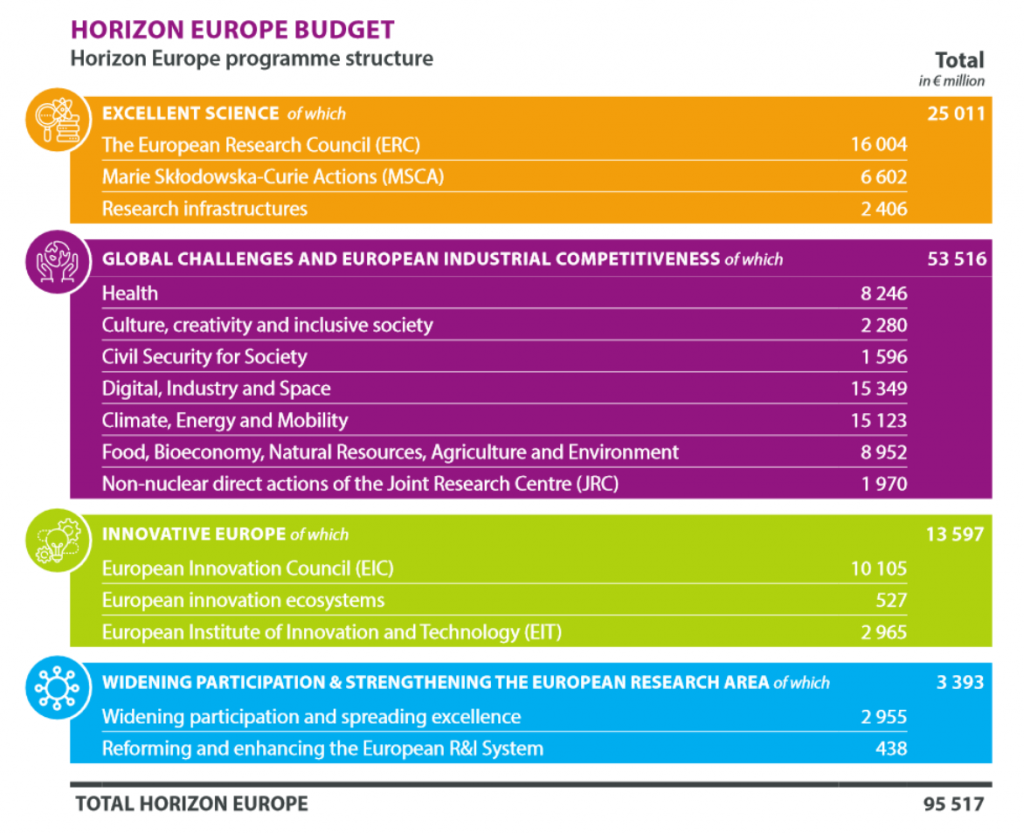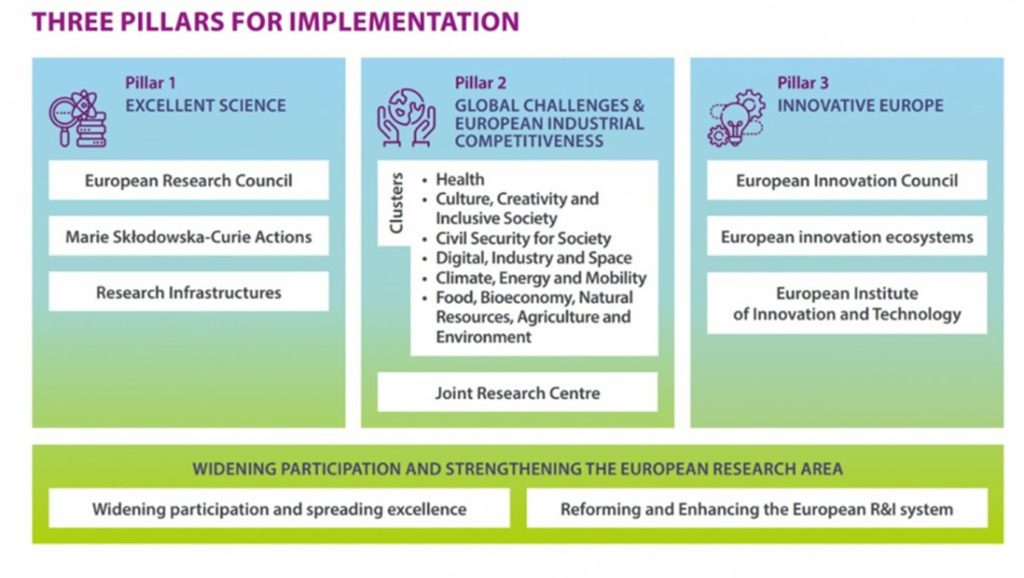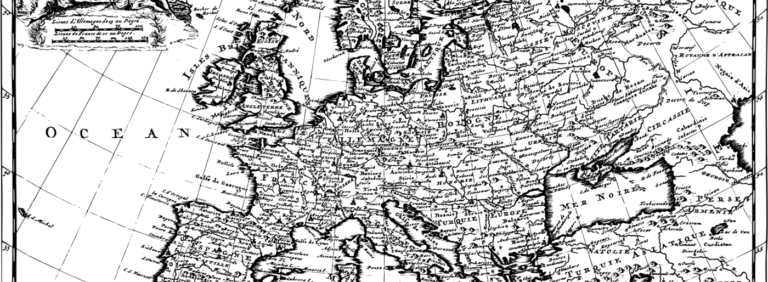The total budget of Horizon Europe is of 95.5 billion euros. It spans over 2021 until 2027 and includes 5.4 billion euros from Next Generation Europe (NGEU) programme, the EU programme for the recovery from the COVID-19 crisis.
Below a breakdown of the Horizon Europe budget:

Around 25 billion euros are dedicated to Excellent Science (Pillar I), 53,5 billion euros to Global Challenges and European Industrial Competitiveness (Pillar II), and 13,5 billion euros to Innovative Europe (Pillar III). The transversal part about Widening the Participation and Strengthening the European Research Area receives around 3,3 billion euros.
Regarding Excellent Science (Pillar I), from the 25 billion euros, a large part (16 billion euros) goes to the European Research Council (ERC), 6,6 billion to the Marie Sklodowska-Curie Actions (MSCA), and 2,4 billion euros to research infrastructures.
Regarding Global Challenges and European Industrial Competitiveness (Pillar II), the budget is divided in seven clusters the Health cluster received 8,2 billion euros, the Culture, creativity and inclusive society receive 2,2 billion euros, the cluster for civil security and society receives 1,5 billion euros, the Digital, Industry and Space cluster receives 15,3 billion euros, the cluster for Climate, Energy and Mobility receive 15,1 billion euros, the cluster for Food, Bioeconomy, Natural Resources, Agriculture and Environment received 8,9 billion euros, and the Non-nuclear direct action of the Joint Research Center (JRC) receives 1,9 billion euroes.
Regarding Innovative Europe (Pillar III), 10,1 billion euros goes to the European Innovation Council, 0,5 billion to the European innovation ecosystems, and 2,9 billion to the European Institute of Innovation and Technology (EIT).
The Horizon Europe framework programme tackles climate change issues, helps to achieve the UN’s Sustainable Development Goals and boosts the EU’s competitiveness and growth. In addition, it facilitates collaboration and strengthens the impact of research and innovation in developing, supporting and implementing EU policies, and creates excellent knowledge and technologies. It creates jobs, fully engages the EU’s talent pool, boosts economic growth, promotes industrial competitiveness and optimises investment impact within a strengthened European Research Area. Legal entities from the EU and associated countries can participate.

More information on the European Commission website.













